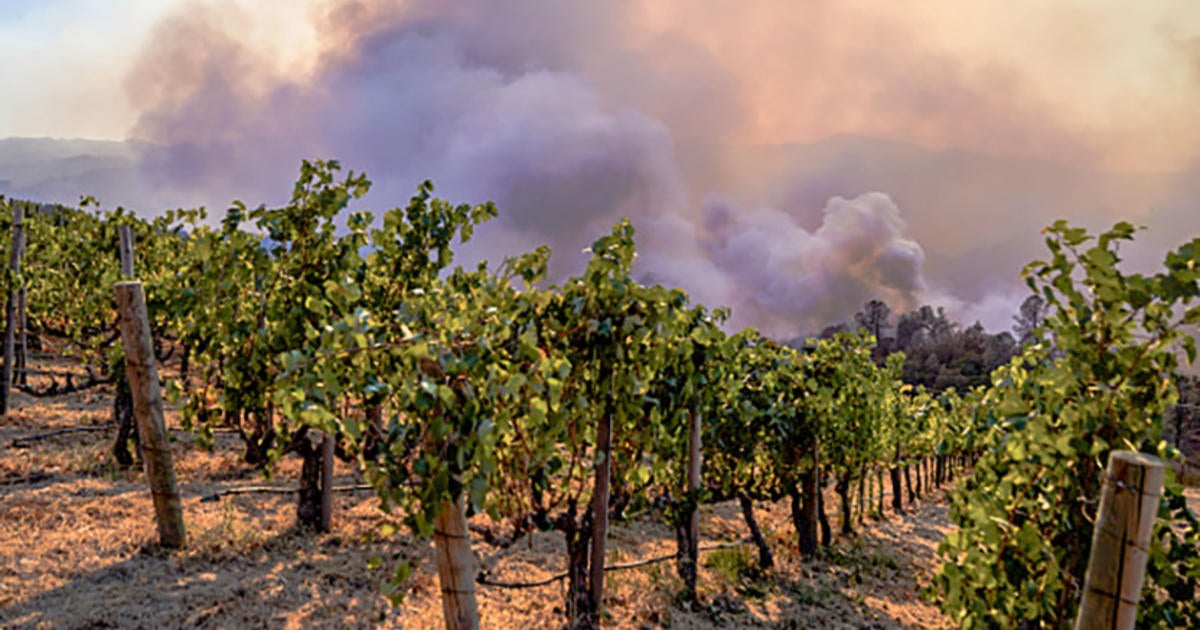NAPA – A famed North Bay winemaker is suing Napa County over what he claims is overreach regarding an “experimental” vineyard project on land burned in the 2020 Glass Fire.
Jayson Woodbridge, who owns Hundred Acre Wine Group LLC, filed the suit Thursday in Napa County Superior Court in an effort to prevent the county from enforcing environmental regulations he says don’t apply to the project.
At question is 80 acres of hillside land on two parcels along Pickett Road in Calistoga that was “was utterly destroyed by the Glass Fire,” according to the suit.
Prior to the fire, the property hosted various types of vegetation, including “manzanitas, bay trees, and scrub, and a small number of oak and digger pine trees,” all of which were wiped out, the suit claims.
A year after the fire, Woodbridge removed the remains of the dead trees “from a small portion of the property nearest to the roadway and surviving structures,” according to the suit.
Because the removal didn’t involve excavation and was “solely for the purpose of mitigating what had become a charred, unsafe and unsightly landscape,” it doesn’t meet the earth moving or disturbing definition in the county’s conservation regulations nor does it constitute vegetation clearing or removal since all the trees were dead, the suit says.
The county believes those activities did, in fact, violate portions of its conservation code and that “virtually any activity undertaken on the property … is subject to control under the Conservation Regulations and requires an Erosion Control Plan,” according to the suit.
In May of this year, Woodbridge added an “experimental, non-erosive” dry-farmed vineyard to the land, which the county also believes violated conservation regulations and should be subject to an erosion control plan, the suit says.
Woodbridge again contends, however, that the regulations don’t apply because he used techniques to install the vineyard that don’t disturb the soil.
“The method involves placing a small, bottomless vessel on the ground, and filling that vessel with compost and a single rootstock,” the suit says. “The rootstock then grows through the compost and roots into the soil without any tilling, drilling, or other soil disturbing activities.”
The county wants Woodbridge to hire a scientist to create a vegetation map of the property, meet with county regulators to go over agricultural plans for the area, hire a qualified professional to develop an agricultural site plan and apply for an erosion control plan or prepare a restoration plan, according to the suit.
The county “is threatening to penalize plaintiff for clearing from its property the dead, charred remains of trees incinerated by the 2020 Glass Fire … to prevent plaintiff from planting a unique, experimental, dry-farmed vineyard using novel, non-erosive techniques that do not disturb any of the soils on plaintiff’s land, and instead force plaintiff to ‘revegetate’ the land with the same type of high-fire-risk trees that fueled the 2017 and 2020 wildfires,” the suit claims.
The suit also claims that the county applies its conservation regulations unevenly throughout its jurisdiction, engages in “selective enforcement” and violated Woodbridge’s right to due process by, in part, failing to provide any meaningful procedure for challenging the way the regulations have been applied to his vineyard.
In addition to court costs and attorney’s fees, Woodbridge is asking the court to find that he didn’t violate county codes and to stop the county from enforcing the conservation regulations with regards to his removal of the “fire-killed trees” and the introduction of the vineyard.
David Morrison, director of the county’s Department of Planning, Building and Environmental Services, declined to comment on the lawsuit.
A case management conference has been set for March 15, 2023.
For all the latest Automobiles News Click Here
For the latest news and updates, follow us on Google News.

